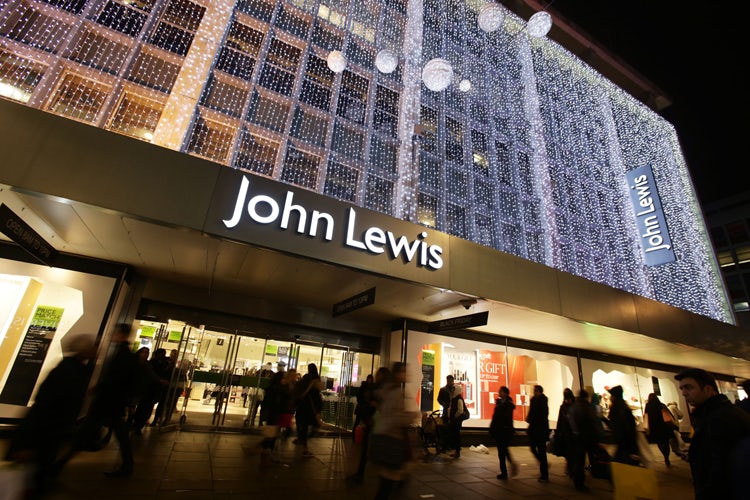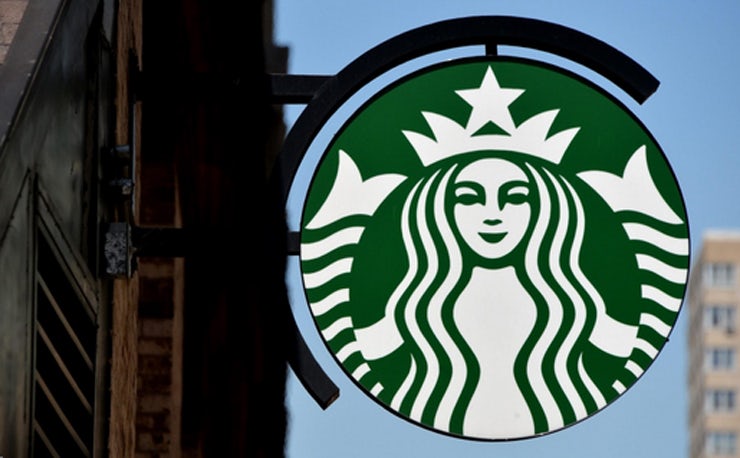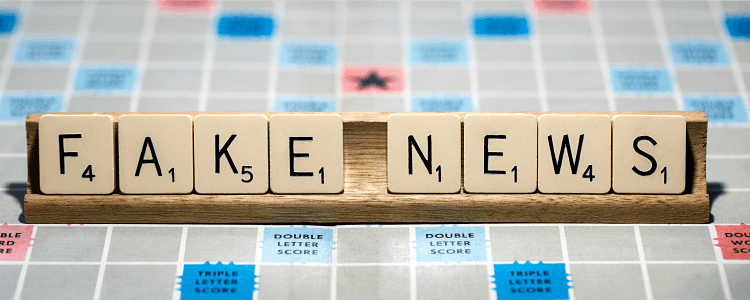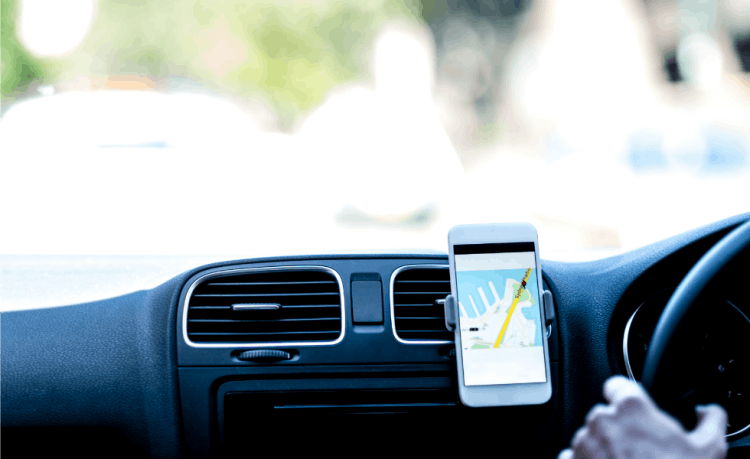John Lewis, HSBC, H&M: Everything that matters this morning
Your daily morning round-up of everything you need to know this morning.
John Lewis boss warns of jobs cuts and price rises
John Lewis managing director Paula Nickolds has warned of further job cuts and price rises as the department store feels the impact of “profoundly” changing consumer behaviour following the Brexit vote.
Nickolds, who is just three months into her role as MD, cited the falling value of the pound as having a “dramatic effect” on the costs of buying products across an international supply chain. These costs are not, however, expected to be passed on in full to consumers.
The managing director also confirmed further job losses are likely this year as John Lewis automates and simplifies “routine processes”. In February, the department store confirmed plans to axe nearly 800 jobs in its customer restaurants and store administration.
Nickolds said John Lewis needs to “modernise” and become “more efficient” to capitalise on the rise of online shopping, which she predicts will account for half of sales by 2020. However, to improve the in-store experience John Lewis plans to expand its range of services to include beauty salons and one-to-one consultations with expert store staff.
READ MORE: New John Lewis boss warns of further job cuts and price rises
HSBC offers customers choice of transgender titles

HSBC has introduced 10 non-gender-specific titles customers can choose from for their retail bank accounts. These include Ind, an abbreviation of individual, Misc or miscellaneous and Mre for mystery.
Developed by the bank’s LGBT staff network, HSBC Pride, the titles will offer extra choices for non-binary people who do not want to be defined by gender. Existing customers will also be able to change their gender on an account. The title will appear of the customer’s account, as well as on their bank card and any correspondence from the bank.
READ MORE: HSBC adds new transgender titles including M and Misc
H&M introduces new brand Arket

Swedish fashion giant H&M is to launch a new brand spanning fashion and homeware called Arket.
Described as a modern-day market offering essential products for men, women, children and the home, the first Arket store will open on London’s Regent Street in early autumn, coinciding with an online launch in 18 European countries. Stores are to follow in Brussels, Copenhagen and Munich.
Each shop will feature Arket’s own product alongside a curated selection from other brands, as well as Nordic style cafes. H&M says the idea behind the brand is to offer high quality, long-lasting products at an affordable price.
Arket will join the wider H&M stable, which also includes Cos, & Other Stories, Monki, Weekday and Cheap Monday.
READ MORE: H&M to launch new ‘more upmarket’ fashion brand in London
BBC launches Brexit messenger bot
The BBC has launched a messenger bot dedicated to updates on Britain’s exit from the European Union.
The BBC Politics chatbot will keep users up to date with the latest information on Brexit by sharing video explainers, graphics and links back to stories on the BBC website. The content has been designed to keep readers within the bot, as well as direct them back to the BBC website.
The chatbot features a variety of tabs including ‘What is..?’, which lists a number of options including ‘Article 50’ and ‘the next step in the process’. There is also a ‘Who voted’ tab, which breaks down statistics of how people voted across the country.
According to the BBC, within a few hours of launching the bot had gained “hundreds and hundreds” of users.
READ MORE: BBC launches Brexit-specific Messenger bot
Former marketer becomes GSK chief executive
Emma Walmsley has become the most powerful woman in British business after being formally appointed CEO of pharmaceutical company GlaxoSmithKline (GSK). She takes over from Andrew Witty, who is retiring from the position he has held since 2008.
However, as she lacks any previous CEO experience, Walmsley is expected to be paid 25% less than her predecessor, taking home a basic salary of £1m, the BBC reports.
Walmsley was previously the CEO of GSK Consumer Healthcare, which spans brands including Panadol, Sensodyne and Horlicks.
Prior to joining GSK in 2010, Walmsley worked at L’Oreal for 17 years across a variety of marketing and general management roles in Paris, London and New York. In 2007 she moved to Shanghai to take on the position of general manager, consumer products for L’Oreal China.
READ MORE: GSK’s Emma Walmsley steps into Andrew Witty’s shoes
Thursday 30 March
Vauxhall to end England and home nations football sponsorship deals
Vauxhall has announced it will end its deals to sponsor the home nations football teams following the 2018 World Cup.
The UK car manufacturer has been the lead sponsor of the England, Scotland, Wales and Northern Ireland teams since 2011 but a spokeswoman said the brand’s priorities have changed and that it will focus more attention on marketing individual car models.
Vauxhall added that although it is ending its role as headline sponsor, it has “agreed to explore other opportunities to continue its relationship with the FAs beyond the conclusion of the existing contracts”.
The current deal is thought to be worth £6m a year to the English Football Association alone. The separate FAs confirmed that they are now looking for new sponsors.
READ MORE: Vauxhall drops FA home nations football sponsorship deals
Poundland to add Pep&Co clothing range to 100 stores
Poundland plans to bring value fashion range Pep&Co to more than 100 of its stores by the end of the year as part of a wider strategy to sell items priced more than £1.
The fashion brand is owned by Steinhoff International, the South African group that bought Poundland for £610m last September. The roll-out this year is the first step in a longer term plan to launch Pep&Co concessions in up to 200 of Poundland’s 850 stores.
Pep&Co was founded by Andy Bond, the former head of Asda’s George clothing label who now runs the European arm of Steinhoff. The chain currently has nearly 60 standalone stores and 30 outlets in Poundland.
Bond said: “We are putting clothing into big Poundlands. We are bringing back to high streets the kind of clothing that was once loved.”
READ MORE: Pep&Co clothing range to be in 100 Poundland stores by year’s end
Samsung looks to make comeback with Galaxy S8 phone launch

Samsung unveiled its latest smartphone at an event in New York yesterday (29 March) as it looked to put recent controversies behind it.
The Korean technology giant has endured negative headlines of late after its chief Jay Y. Lee was arrested last month on corruption charges. This followed last year’s disastrous launch of the Galaxy Note 7 smartphones, which were prone to fires.
Yesterday saw the unveiling of the Galaxy S8 and S8 Plus phones, which appeared to receive a positive reception on social media. New features include larger screen sizes that do away with the physical home button and a new voice-activated personal assistant called Bixby.
CCS Insight analyst Ben Wood told Sky News: “The Galaxy S8 is the most important phone for Samsung in a decade and every aspect will be under the microscope following the Note 7 recall.”
READ MORE: Samsung Galaxy S8: Firm unveils ‘comeback’ phone after Note 7 fire woes
Topshop managing director leaves for The White Company
Topshop’s managing director Mary Homer is leaving the fashion retailer after 11 years in the role to become boss of The White Company.
The move follows a series of recent departures from Topshop parent company Arcadia Group, including Burton managing director Wesley Taylor, Topshop retail director Craig McGregor and Miss Selfridge’s creative director Yasmin Yusuf.
Homer insisted her decision to leave was “very amicable”, while Arcadia Group boss Sir Philip Green said: “There’s no dramas, as will no doubt be portrayed.”
Green faced criticism last year over the collapse of retailer BHS.
READ MORE: Another blow to retail billionaire Sir Philip Green as Topshop MD Mary Homer quits
BrewDog faces criticism over trademark dispute

BrewDog has defended its right to protect its brand trademarks following two separate legal disputes.
In a blog post, founder James Watt admitted the business was wrong after it took legal action against a pub that wanted to change its name to Lone Wolf. BrewDog has the trademark for Lone Wolf as a spirit but the business faced criticism on social media that its actions were heavy-handed.
Watt admitted the pub’s actions were not detrimental to BrewDog’s business. “As soon as I found out, I reversed the decision and offered to cover all of the costs of the bar,” he wrote.
However Watt defended a separate decision to take action against a business that used BrewDog’s Draft Punk trademark.
“If we did not object they could have registered Punk and sold it to AB-InBev the next day, and then we could have been driven out of business,” he said.
READ MORE: BrewDog defends right to defend its trademark brands
Wednesday 29 March

Theresa May signs Brexit letter
The PM has signed the letter that will formally begin the UK’s departure from the European Union and it will be delivered to European Council president Donald Tusk today. In a Commons statement the prime minister told MPs this marks “the moment for the country to come together”.
The future for brands in the UK is unclear. Some industry leaders say advertising is key to the UK’s success post-Brexit while negative effects of Brexit make headlines, such as Unilever’s price rises and brands being cautious about hiring new staff. UK economic growth is set to slow and brands that trade on their British heritage could face challenges.
READ MORE: Everything marketers need to know about Brexit
Uber’s workforce is 64% male and 50% white
 Uber has released its diversity numbers and admits there’s “much more work to do” and says it needs “to do better” as the numbers show the workforce is made up of 63.9% male and 49.8% white employees.
Uber has released its diversity numbers and admits there’s “much more work to do” and says it needs “to do better” as the numbers show the workforce is made up of 63.9% male and 49.8% white employees.
It also shows that 30.9% of employees are Asian, 8.8% are black, 5.6% Hispanic and 4.3% multi-racial. However, Uber’s chief human resources officer, Liane Hornsey, claims the company has “made some strides in diversifying” it’s workforce.
Last year, 41% of new employees were women, which is 5% more than the proportion of women in its overall employee population. Similarly, Uber hired 3% more black and 2% more hispanic employees compared to its overall employee base.
Hornsey says Uber will “be getting advice from diversity and inclusion experts”, and from others in the tech sector “who have been working on these issues for longer than we’ve been around—and who are working to make change happen”.
She adds: “It’s no secret that we’re late to release these numbers. And I’d like to thank our employees for their tenacity in arguing the case for greater transparency—because what you don’t measure, you can’t improve.”
The Independent launches fake news initiative
The Independent is launching ‘In fact’, a new initiative to combat fake news that seeks to expose abuses of the truth that have become a major issue in the media, politics and the web.
It goes live in April and will feature debunker news articles, quizzes, fact boxes and long-read explainers of key issues from immigration to immunology, as part of a new channel on the website and via Facebook and Twitter.
READ MORE: What fake news means for advertisers?
Editor Christian Broughton said: “[Fake news] propagates ignorance and allows voters to be conned and manipulated. The Independent is in a unique position to confront the phenomenon head-on. We’re calling on our readers and social media followers to help us on this one and flag any abuses of the truth they see – we’ll investigate as many of them as we can.”
The Independent is also celebrating record growth since its move to digital only in March last year, with digital audiences up 71% year-on-year to 96.5 million global unique browsers per month and up 88% to 5.45 million daily uniques. Video views have risen 350% year on year and it has grown its presence on mobile, with 73% of all users accessing the news brand that way.
Twitter expands pre-roll ads to Periscope

Twitter is launching pre-roll ads on Periscope video to allow publishers and creators to monetise content and brands to advertise against it.
In a blog post, the social media site says video has become an increasingly important channel for publishers, creators and brands to reach their audiences and will enable brands to marry their message with specific broadcasts from creators and publishers.
When consumers scroll through their Twitter timelines or search for content from a specific publishers or creators, Periscope videos, both live and replay, could start with a short ad.
Mike Folgner, group project manager at Periscope says: “For creators and publishers that use Periscope to go live on Twitter every day, these pre-roll ads present a new way to monetise their video content.
“For marketers, they have a new source of brand-safe video advertising beyond what was previously available, including ads during live streaming programs from select premium publishers, promoted tweets with Periscope video and custom Amplify campaigns with premium content creators.”
READ MORE: Expanding Pre-Roll Ads to Periscope Video
Amazon makes a play for live music and entertainment
Amazon has introduced new live music and entertainment experiences for UK Prime members, offering exclusive access to music, theatre and family concerts and shows at least 24 hours before general sale via Amazon Tickets.
Tickets will be available for pre-sale exclusively for Prime members from this Thursday (30 March) including UK concert tours by ABC, Art Garfunkel, The Darkness and KC & The Sunshine Band. Consumers can also access tickets for premium seating and lounges at London’s O2 and the SSE Arena in Wembley.
Amazon has also made its first move into the Middle East after agreeing to buy the region’s largest online retailer, Souq.com.
Tuesday 28 March
Google faces $750m hit in YouTube ad boycott
The advertising boycott of YouTube could cost the video platform $750m (£597m) in lost revenue in 2017, according to a study by equities firm Nomura Institet.
This equates to about 7.5% of YouTube’s annual revenue, but only a tiny proportion of Google’s overall revenue, which in Q4 2016 alone was around $26bn (£20.7bn). Google makes a large chunk of its annual revenue through search, which is unaffected by the boycott.
The study also suggests the advertising boycott would hit YouTube hardest in the second and third quarter of this year, with the video platform earning $295m (£235m) less than the planned $2.46bn (£1.96bn) during each period.
US brands have now joined the ad boycott with PepsiCo, Walmart and Starbucks all suspending their advertising on YouTube. They join the likes of AT&T, Verizon and Volkswagen, which all pulled ads last week.
READ MORE: YouTube revenues estimated to take 7.5% hit in 2017
Tesco fined £129m for overstating profits in 2014
Tesco has agreed to pay a fine of £129m to avoid prosecution for overstating its profits in 2014. It has also agreed to a finding of “market abuse” from the Financial Conduct Authority for its trading statement in August 2014 which overstated its expected profits.
Dave Lewis, Tesco CEO, says: “Over the last two and a half years, we have fully cooperated with this investigation into historic accounting practices, while at the same time fundamentally transforming our business. We sincerely regret the issues which occurred in 2014 and we are committed to doing everything we can to continue to restore trust in our business and brand.”
It has established a compensation scheme for investors who bought shares or bonds between 29 August and 19 September 2014.
READ MORE: Tesco fined £129m for overstating profits
Virgin Atlantic set to make its first loss in four years due to Brexit
Virgin Atlantic is predicting it will make its first loss in four years this year due in part to the weakness of sterling.
Craig Kreeger, the chief executive of the Sir Richard Branson-backed airline, is forecasting a loss for the 2017 calendar year, as the airline struggles to cope with the fall in the value of the pound since last June’s EU referendum.
Despite delivering the airline’s best profit in five years in 2016 – a pre-tax profit of £23m – the aviation chief says he is not as hopeful for this year. He explains that sterling’s weakness has a two-fold effect, reducing sales and upping costs.
“What we are seeing is leisure demand down as it’s more expensive for Brits to go abroad. And our costs are up as both fuel and airplanes are paid for in dollars,” he continues.
READ MORE: Virgin Atlantic set to plunge into the red as weak pound curbs profits
Deliveroo riders plan fresh legal action

A group of Deliveroo couriers is planning legal action against the food delivery firm to claim better employment rights including the minimum wage, sick pay and holiday.
The 20 delivery riders say they are employees and not, as the company argues, self-employed contractors. They are seeking compensation for not receiving holiday pay and for being paid wages below the legal minimum for employees.
The Deliveroo move follows successful employment tribunal cases brought by cycle couriers at CitySprint and Excel and drivers for taxi app Uber. All three cases found the riders were workers, meaning they are entitled to limited rights including holiday pay and the minimum wage, rather than self-employed contractors with no employment rights.
READ MORE: Deliveroo riders plan legal action over employment rights
John Lewis expands startup accelerator with Waitrose

High street giant John Lewis is expanding its startup accelerator JLab by bringing Waitrose into the mix. Startups in the retail space will now have the chance to work with the supermarket as it searches for the next disruptive tech trend.
Applications for the fourth cohort of startups opened on Monday (27 March) and the successful ones will join a 12-week programme of mentoring and free workspace in the partnership’s head office in London. And they also have access to up to £200,000 in funding from the retailer and entrepreneur Stuart Marks’ L Marks fund, in return for an equity stake in the startup.
JLab has focused on smart home technology in previous years. Last year’s winner was Digital Bridge, a tool which allows users to visualise how furniture will look in their home.
READ MORE: John Lewis is expanding its startup accelerator JLab to Waitrose
Monday 27 March
Uber suspends self-driving cars after Arizona crash
Uber has suspended self-driving cars in three states following a crash in Arizona, which left one of its cars on its side.
The accident happened in a Volvo SUV which was carrying two engineers in the front and no backseat passengers.
The car was in self-driving mode at the time of the crash and no-one was hurt.
Following the accident Uber has pulled its self-driving vehicles off the road in Arizona, Pennsylvania and California – all three states where it operated its driverless cars.
READ MORE: Uber suspends self-driving cars after Arizona crash
BT fined £42m over delays to high-speed cable installation

BT has been fined £42m by the telecoms watchdog after it failed to compensate rivals when equipment critical to broadband was not provided in time.
It is expected to pay out £300m in compensation to rivals over the delayed high-speed cable installations.
Ofcom said BT Openreach, the telecom company’s infrastructure arm, committed a “serious breach” of its rules for reducing payments to other providers between January 2013 and December 2014.
“The size of our fine reflects how important these rules are to protect competition and, ultimately, consumers and businesses,” it said.
BT said it “apologised wholeheartedly” over the incident.
READ MORE: BT fined £42m over delays to high-speed cable installation
Dyson posts £2.5bn record sales
Sir James Dyson plays down a “hard Brexit” as he says his technology company, Dyson, has not been harmed, with £2.5bn record sales.
The news comes as Dyson published its financial results for 2016. Sales rose 45% year-on-year to £2.5bn, while underlying profits rose 41% to £631m.
These results include a 244% rise in sales in China, while UK sales rose by a third.
READ MORE: Dyson plays down hard Brexit concerns as company posts £2.5bn record sales
Santander employs hundreds of UK staff on one-hour contracts
According to the Financial Times, Santander employs hundreds of UK staff on one-hour contracts, that guarantees them just one hour of work per month.
The publication reported that Santander employs 371 “on-call customer service advisers” on the one-hour contracts, who are used to supply cover to brand staff.
“You’ll be guaranteed and paid for at least one hour per month / 12 hours per year,” a recent advert for one of these roles said. “Additional hours will vary according to branch requirements and will most likely be a mix of pre-arranged and short-notice cover, so flexibility around hours and location is essential.”
The bank says it does not offer zero-hour deals and treats its workers in a ‘fair way’.
READ MORE: Santander employs hundreds of UK staff on one-hour contracts
Starbucks and Walmart join growing list of advertisers boycotting YouTube

More companies are pulling advertisements, as many doubt Google’s ability to prevent marketing campaigns from appearing alongside repugnant videos.
PepsiCo, Walmart and Starbucks have all confirmed that they have suspended their advertising on YouTube.
The companies pulled their ads after the Wall Street Journal found Google’s automated programs placed their brands on five videos containing racist content. AT&T, Verizon, Volkswagen also pulled ads earlier last week.
“The content with which we are being associated is appalling and completely against our company values,” said Walmart in a statement on Friday.
READ MORE: Starbucks and Walmart join growing list of advertisers boycotting YouTube











